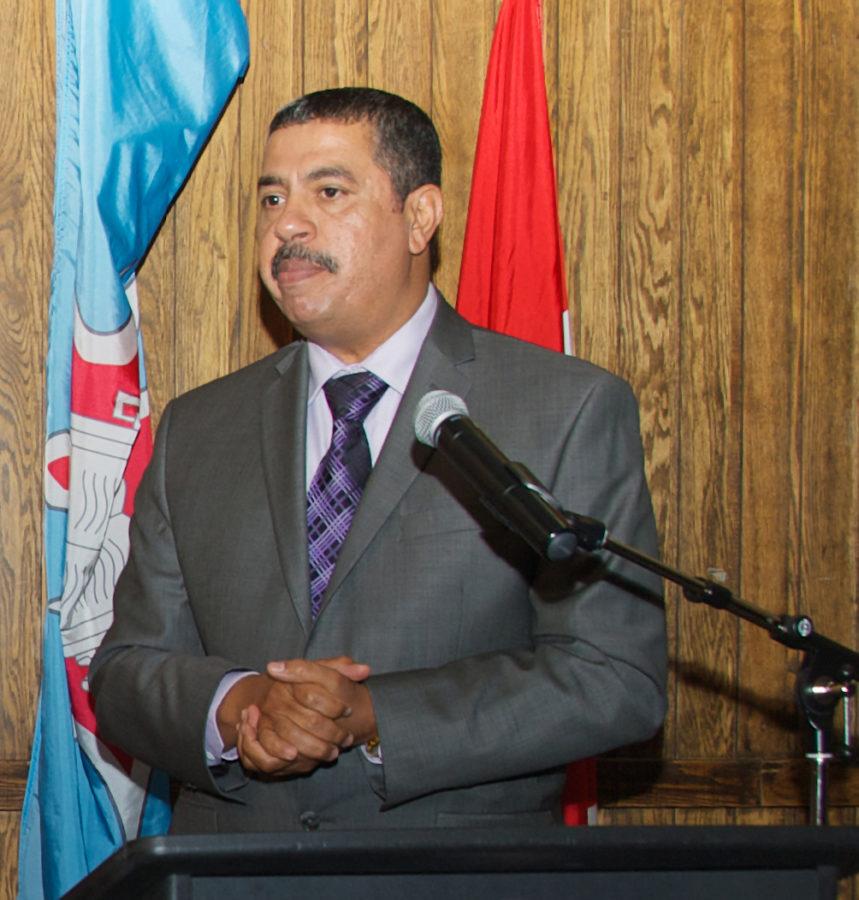Saudi Arabian officials rejected Iranian calls to end the airstrikes on their neighbor, Yemen, Sunday when militants dropped bombs on a military camp in the Yemeni city of Taiz, killing eight civilians, according to NBC News.
Freshmen Mohammad Hafiz moved to the U.S. three years ago from Mecca, Saudi Arabia, to study English before attending Suffolk. He said he supported Saudi Arabia in continuing the airstrikes even after Iran called to end them.
“The Saudi Arabian government has been saying that Iran should not get involved. And I agree with them,” said Hafiz. “Saudi Arabia has a good relationship with Europe, with the United States, with Canada, with so many different countries around the world, so it would be smart for Iran to not get involved.”
Hafiz’s mother can trace her roots back to Yemen. Hafiz does not believe in war, killing, or attacking different countries, he said.
“Everything Saudi Arabia is doing is a response,” said Hafiz. “Killing is not an option, at least, it’s not the first option.”
The Houthi insurgency in Yemen, also known as the Sa’dah conflict or war, began in June 2004 when head of the Zaidi sect, Hussein Badreddin al-Houthi, launched an uprising against the Yemeni government. The government believed that the Houthis were looking to overthrow the government and implement Zaidi religious law. The government also accused Iran of directing and financing the rebels, according to BBC.
In August 2009, the Yemeni army launched an attack against the Houthis in the Sa’ada province, where hundreds of thousands were displaced because of the fighting, according to BBC.
The protests that took place marked the clashes between not only the Yemeni government and the Houthis, but also the Houthis and al-Qaeda. Since the resignation of President Abd Rabbuh Mansur Hadi and his ministers in January, Houthis have declared themselves in full control of the government by putting together a Revolutionary Committee led by Mohammed Ali al-Houthi, according to CNN.
The U.N. Secretary-General Ban Ki-moon called for Hadi to be restored as president in February, according to BBC.
President Hadi appointed his prime minister on Sunday, a move that Reuters said was in hope of improving the chances of a peaceful settlement to the Civil War.
Vice President Khaled Bahah is known as being popular across Yemen’s spectrum of parties and is seen as a figure that could possibly calm tensions and bring parties to a negotiating table, according to Reuters.
Hafiz believed that Bahah was the best choice for Yemen’s vice president, that he would bring parties together for peace.
Yemen has since been bombed by Saudi Arabia and the Sunni Arab allies for the past two weeks in hopes to slow the advancement of Iranian-allied Houthi militias toward the port city of Aden, according to Reuters.
The U.N. has been warned on the growing humanitarian crisis in Yemen and said the majority of the people killed in the conflict are civilians, blaming both Saudi-led coalition and Houthi rebels.
Secretary-General Ki-moon said to Reuters on Sunday he was concerned about the fighting and urged for peace talks.
BBC reported that Yemen is becoming a “violent cauldron” where the competing parties and interests of the Houthi rebels, Sunni tribes, Saudi Arabia, al-Qaeda, Iran, and Islamic State are “forming a toxic mix.”
The violence there has increased to the point where the U.S. and U.K. have completely evacuated their staff and closed down their embassies, according to reports by BBC.








